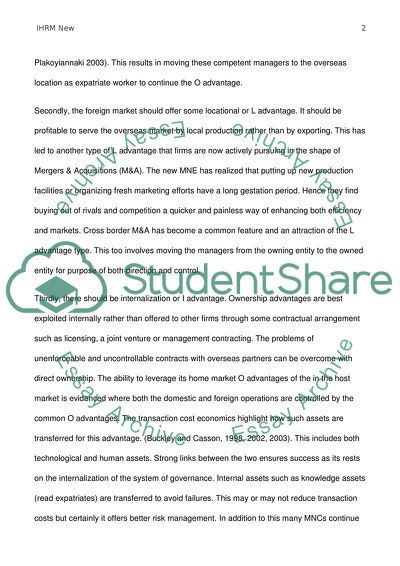Cite this document
(The Reasons behind Using Expatriates for Overseas Assignments Assignment - 2, n.d.)
The Reasons behind Using Expatriates for Overseas Assignments Assignment - 2. https://studentshare.org/human-resources/1724582-international-human-resource-management
The Reasons behind Using Expatriates for Overseas Assignments Assignment - 2. https://studentshare.org/human-resources/1724582-international-human-resource-management
(The Reasons Behind Using Expatriates for Overseas Assignments Assignment - 2)
The Reasons Behind Using Expatriates for Overseas Assignments Assignment - 2. https://studentshare.org/human-resources/1724582-international-human-resource-management.
The Reasons Behind Using Expatriates for Overseas Assignments Assignment - 2. https://studentshare.org/human-resources/1724582-international-human-resource-management.
“The Reasons Behind Using Expatriates for Overseas Assignments Assignment - 2”. https://studentshare.org/human-resources/1724582-international-human-resource-management.


